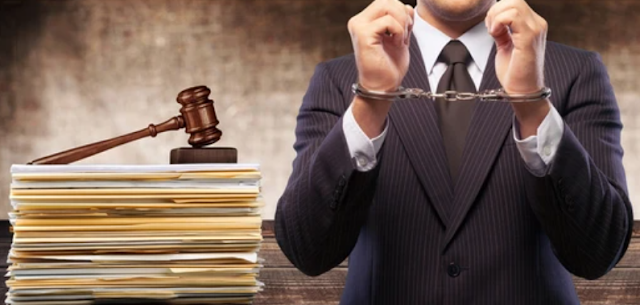White-Collar Crime: Types and Consequences
White-Collar Crime: Types and Consequences
White-collar crime refers to non-violent, financially motivated offenses committed by individuals or organizations in the business or professional sphere. Unlike traditional street crimes, white-collar crimes typically involve deceit, fraud, or manipulation for personal or corporate gain. These offenses are often committed by individuals in positions of power, authority, or trust. Let's explore the types and consequences of white-collar crime.
Types of White-Collar Crime:
Fraud:
Fraudulent activities involve deliberate deception for financial gain. Common forms of fraud include:
a. Securities Fraud: Manipulating financial markets, insider trading, or providing false information to investors.
b. Bank Fraud: Illegally obtaining funds, assets, or property from a financial institution through deceptive practices.
c. Insurance Fraud: Filing false claims, staging accidents, or misrepresenting information to insurance companies for financial gain.
d. Identity Theft: Unauthorized use of someone's personal information to commit fraud, such as accessing financial accounts or making purchases.
e. Tax Evasion: Intentionally evading or underreporting income, inflating deductions, or concealing assets to avoid paying taxes.
Embezzlement:
The misappropriation or theft of funds entrusted to an individual by their employer or organization for personal use. Embezzlement often involves employees diverting company funds or assets for personal gain.
Money Laundering:
The process of concealing the origins of illegally obtained funds by making them appear legitimate. Money laundering involves a series of transactions designed to obscure the source of funds, making it difficult to trace criminal proceeds.
Insider Trading:
The illegal trading of stocks, bonds, or other securities based on non-public information. Insider trading involves using privileged information to gain an unfair advantage in financial markets.
Bribery and Corruption:
Offering, giving, receiving, or soliciting something of value to influence the actions or decisions of individuals in positions of power or authority. This includes bribery of public officials, politicians, or corporate executives.
Consequences of White-Collar Crime:
The consequences of white-collar crime can be far-reaching and significant, impacting individuals, organizations, and society as a whole. Some of the consequences include:
Financial Loss:
White-collar crimes often result in substantial financial losses for individuals, businesses, investors, and consumers. Fraud, embezzlement, and other forms of financial deception can lead to the collapse of businesses, bankruptcy, and loss of savings or investments.
Erosion of Trust:
White-collar crimes erode trust in financial institutions, corporations, and professionals. When individuals in positions of authority or responsibility engage in criminal activities, it undermines public confidence in the integrity of the system and can have long-term effects on trust and credibility.
Legal Consequences:
Perpetrators of white-collar crimes can face serious legal consequences, including fines, restitution orders, and imprisonment. The severity of penalties depends on the nature and scale of the offense, with high-profile cases often attracting media attention and public scrutiny.
Reputational Damage:
Individuals and organizations involved in white-collar crimes suffer reputational damage, which can have long-lasting effects on their personal and professional lives. Reputational damage may result in loss of clients, customers, business partnerships, or employment opportunities.
Economic Impact:
White-collar crimes can have a significant impact on the economy. Large-scale frauds, insider trading, and corporate malfeasance can destabilize financial markets, disrupt economic growth, and harm investor confidence.
Regulatory and Legal Reforms:
White-collar crimes often prompt regulatory agencies and lawmakers to introduce new laws, regulations, and oversight measures to prevent future occurrences. These reforms aim to enhance corporate governance, strengthen accountability, and improve transparency in financial transactions.
Social Consequences:
White-collar crimes can have broader social consequences, such as the loss of jobs, economic inequality, and the erosion of public trust in institutions. These crimes can exacerbate social divisions and contribute to a sense of injustice within society.
It is worth noting that investigating and prosecuting white-collar crimes can be complex, requiring specialized knowledge and resources. Detecting and preventing these offenses often involves cooperation between law enforcement agencies, regulatory bodies, and financial institutions to uncover fraudulent activities and hold responsible parties accountable.















No comments